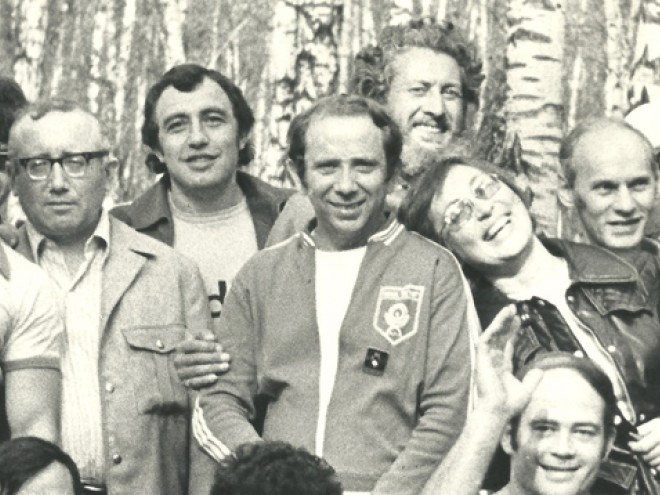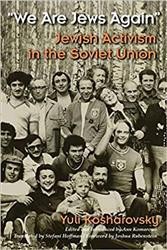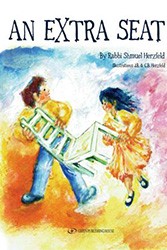
Inna and Yuli Kosharovsky with son Moty, Moscow, 1981. Collection of Bill Aron.
Ann Komaromi is the editor of Yuli Kosharovsky’s “We Are Jews Again”: Jewish Activism in the Soviet Union. She will be blogging here all week for Jewish Book Council’s Visiting Scribe series.
Yuli Kosharovsky (1941−2014) wrote a history of the Jewish movement that is intensely personal. The book We Are Jews Again is punctuated by Yuli’s conversations with fellow former activists as well as passages recounting his own experiences and reflections on them. In the first set of recollections, Yuli remembers the tensions he felt as a highly-trained and privileged Soviet specialist working in strategic weapons development living amidst anti-Semitism and anti-Israel propaganda following the Six-Day War. He describes a moment of revelation:
…I was walking along a noisy street and my head was buzzing from lack of sleep. Suddenly everything around me vanished, it became quiet, and the passersby and cars disappeared. A bright light illuminated my consciousness and I saw with piercing clarity who I was, where I was going, and what I wanted. I knew that this was not a fantastic trick, that I was seeing my path. It was a divine beacon to my atheistically educated soul.
I don’t know how long this lasted, but then once again the street became noisy and the cars were moving.
That moment ended all doubts.
Until my departure, another long twenty-two years would pass. It would be difficult and hard to endure because of fear, pain, and exhaustion. There would be children who would grow up in the midst of all this.
At the most difficult moments, I would return in my mind to that spark of consciousness, to that clarity, and my strength would return.
It is stunning to realize that Yuli struggled after this insight for twenty-two years in the Soviet Union, sustained by the dream of leaving for Israel. For eighteen of these years, he was a “refusenik,” a status that came from applying for an exit visa and being refused and which meant no more privileged job in the weapons laboratory, ostracism from general Soviet society, and intermittent persecution by the authorities. Yuli was like many refuseniks, in that he took what jobs he could to survive and feed his family, turning to the Jewish community around him for social life and support. Unlike most other refuseniks, Yuli’s early moment of clarity and the force of his conviction propelled him to become a leader. He learned and taught Hebrew despite the de facto ban on the language, organized other Hebrew teachers in an underground network, and helped coordinate and support a host of unofficial activities designed to support Jewish education, identity and the movement for the right to emigrate and make aliya. Details about the extent of this organized activity in the Soviet Union help make this book a real contribution to the history of the movement.
This photo [see header] of Yuli, his wife Inna and their son Moty show the personal side of this activity – these were not activists working in isolation. The activists had family and friends who shared the risks they took because they all believed that to live as Jews with dignity and rights was a noble cause. They aimed to teach their children to live that way, despite the resistance of the society and State in which they found themselves.
Read more about “We Are Jews Again”: Jewish Activism in the Soviet Union here and check back tomorrow to read more from Ann Komaromi.
Ann Komaromi is Associate Professor in the Centre for Comparative Literature at the University of Toronto. She is author of a book on underground novels in the Soviet Union, Uncensored: Samizdat Novels and the Quest for Autonomy in Soviet Dissidence (Northwestern University Press, 2015), which won the AATSEEL Award for Best Book in Literary/Cultural Studies. In 2015, she created the electronic archive “Project for the Study of Dissidence and Samizdat” for the University of Toronto Library Collections.



